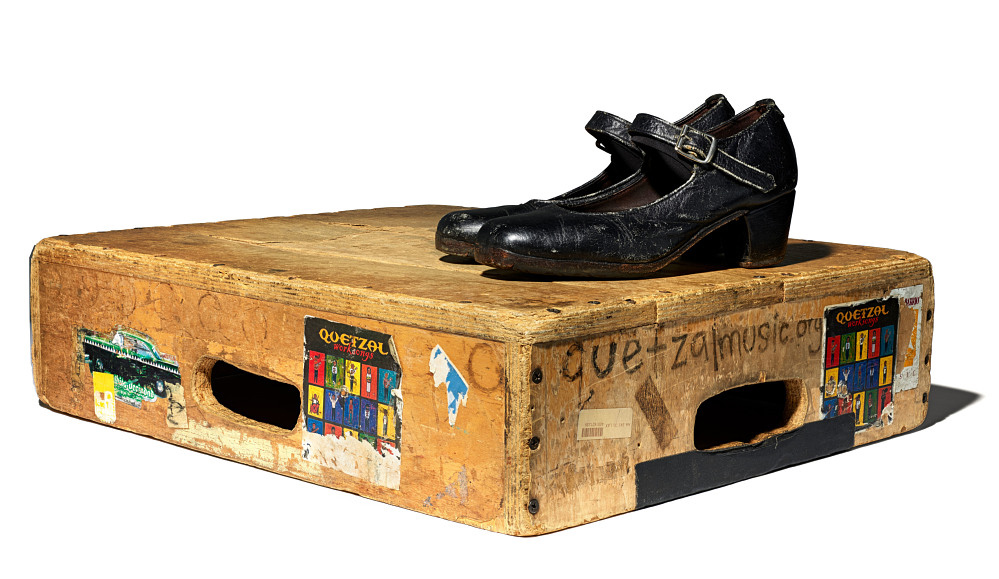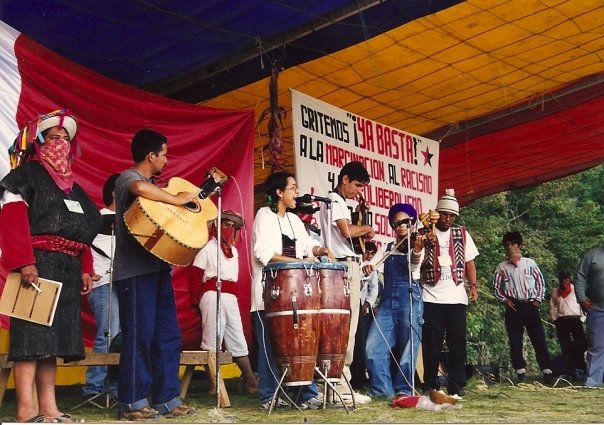QUETZAL is a relentlessly innovative Grammy award-winning ensemble that narrates the social, cultural and political stories of humanity. Describing the bands influences, Dr. Alex Chavez states, “You hear students of Chicano rock, rhythm and blues, JB funk, Cuban batá, punk, and Motown soul. You hear a band that has cut its teeth organizing, that has worked to fight forms of oppression in the communities they are connected to. And in pursuit of forging these creative and political bridges, you hear artists who are at the epicenter of the transnational world of son jarocho.” Quetzal’s live shows are filled with moments of tenderness, fervor and vivid storytelling that transport the audience into a world of affirmation and belonging. They have graced stages across the US, Canada, Asia and Mexico for nearly 26 years. Recognized by notable institutions such as the Library of Congress and The Kennedy Center, the traveling exhibit “American Sabor: Latinos in U.S. Popular Music” sponsored by the Smithsonian Institute, featured Quetzal as leaders and innovators of Chicano music. This feat coupled with their Grammy Award winning album on Smithsonian Folkways label “Imaginaries” (2013) marks the importance of their past and ongoing work. The relevance of Quetzal’s music and lyrics have been noted in a range of publications, from dissertations to scholarly books. Most recently and as a testament to the body of music and community work Quetzal has accomplished on and off the stage, in the summer of 2017 Gonzalez’s tarima (stomp box) and zapateado dance shoes were acquired by the National Museum of American History and are now on permanent display.

Quetzal emerges out of a contentious moment in Los Angeles history. The 1992 Los Angeles uprising along with social movement efforts against Proposition 187 campaign (that denied medical and public services to undocumented immigrants and public education to undocumented children) were prominent catalysts. Most notably the moral philosophy of the Mayan Zapatista insurrection in Mexico spurred a hope and powerful synergy across the city as various communities utilized expressive cultures and public art as platforms from which to voice their resistance. Today the proactive strategy of Quetzal and other artivists is to be regenerative and resourceful in the face of adversity.

In addition to performing, members of Quetzal participate in a much larger web of musical, cultural, and political engagement throughout the state and have been instrumental in catalyzing the transnational dialogue between Chican@s/Latin@ communities in the U.S and Jarocho communities in Veracruz, Mexico. Remaining active within the community, various members of the band (Flores, Enomoto, Perez, Lopez, Greer) have been implementing the collective songwriting method and traditional music pedagogy in correctional facilities, schools, prisons, detention centers and college classrooms throughout California, Arizona and Washington. As an educator, Gonzalez has won numerous teaching awards and recently culminated a three year Artist in Residence at the ASU Gammage. Flores is a Senior Organizer for Community Power Collective and Program Manager for the Alliance for California Traditional Arts (ACTA) resourcing local traditional cultural practices in the fight against displacement in East Los Angeles. In these ways, their performance background, music pedagogy, and transnational music movement experience is embedded in their holistic approach to music. Inspired by the son jarocho music genre, their latest recording titled “Puentes Sonoros”(Sonic Bridges) is due for release in the Fall of 2019 on Smithsonian Folkways. A collection of original songs inspired by the bands travels to Veracruz Mexico in the Summer of 2018.
For members of Quetzal, music is a resource that lives at the essence of community cultural vitality and transformation. As an enduring and prominent force channeling the East L.A. sound scape, Quetzal continues to model how music, culture, and sociopolitical ideology come together on and off the stage.
Band Members:
Dr. Martha Gonzalez – Lead Vocals, Percussion
Tylana Enomoto – Vocals, Violin
Quetzal Flores – Jarana, Guitars, Bajosexto, Requinto Doble
Juan Perez – Double Bass, Bass Guitar
Alberto Lopez – Percussion
Evan Greer – Drums, Percussion